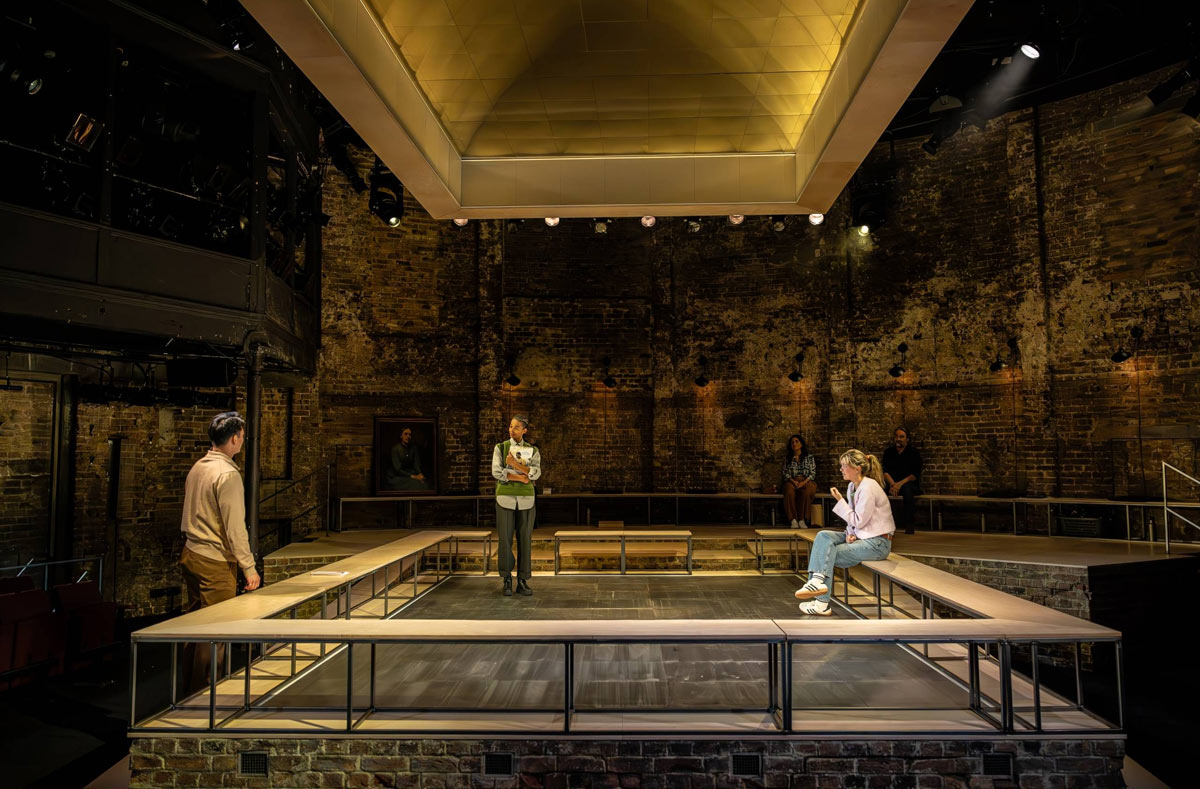Review: ALMA MATER at Almeida
At its heart, Kendall Feaver’s play ALMA MATER deals with the ever widening gap in the differing generational approaches to feminism. Set on a fictitious university campus, a student Paige (Liv Hill) claims to have been sexually assaulted and at first wants the experience to simply go away. Others see the incident as a rallying call to end what they perceive is an endemic rape culture largely condoned by silence.
 Alma Mater at Almeida Theatre.
Alma Mater at Almeida Theatre.
Jo Mulligan (Justine Mitchell) the progressive former journalist who has recently been made the first ever female Head of the college, has to balance taking action, against other compromising considerations. Meanwhile, in view of Jo’s seeming intractability, her long-term friend and fellow academic Leila Bahrami (Nathalie Armin) switches presumed allegiance and offers support to the students demanding action. Leila’s husband Michael (Nathaniel Parker) is both Chair of the Governors and has long been an advocate for Jo, securing her the position of Head of the College. Tangled webs.
The Almeida has a long history of presenting work of a challenging and questioning nature and here, what could have simply turned into an exhausting exposition of every nuanced viewpoint and niche subtlety surrounding accusations of sexual assault, instead offers a measured (albeit slightly wide ranging) selection of matters for consideration. First of these, is that everybody suffers from such a situation — there are no winners and everyone becomes a victim of the circumstances to some degree, be they the accuser, the accused, their parents, friends, the institution or those who represent it. The lynchpin character is Nikki (Phoebe Campbell), a bright and energised activist who views the campus issues and failings as her call to arms. Paige’s request for the name of a local doctor leads to a conversation in which she reveals that on her first drunken night, she becomes intimate with a popular 3rd year student and realises in the morning, that after she passed-out, he engaged in non-consensual sex. Nikki believes this is indicative of a wider problem and embarks on research. Through her subsequent crusade, she also retrospectively challenges a similar incident of which she was the victim years before.
Every character gets their soap box moment in which they can espouse and convey a convincing moral justification for their viewpoint. A late entry to the playing field is Tamara Beade (Susannah Wise) who as mother of the accused student conveys every proud parent’s worst fear — that their golden boy might have behaved in a way which demonstrates a darker side, and which will ruin their future prospects.
Neatly set in a large illuminated square of benches, each actor dips in and out of scenes then retires upstage to the darkened wall when not required. It is a simple and effective staging device in Director Polly Findlay’s atmospheric and often tense production.
It is too complex a subject from which to draw generalised conclusions, but the very fact that a play with such complex issues is playing, means that the conversation is still ongoing and requiring of our attention and consideration.
Latest News

 New musicals to watch in London in 2026
28 December 2025 at 11:24
New musicals to watch in London in 2026
28 December 2025 at 11:24

 New plays to watch in London in 2026
28 December 2025 at 09:24
New plays to watch in London in 2026
28 December 2025 at 09:24

 Daniel Breaker joins West End production of Hadestown
26 December 2025 at 21:46
Daniel Breaker joins West End production of Hadestown
26 December 2025 at 21:46

 London Productions 2025 - A Year in Review
26 December 2025 at 21:11
London Productions 2025 - A Year in Review
26 December 2025 at 21:11